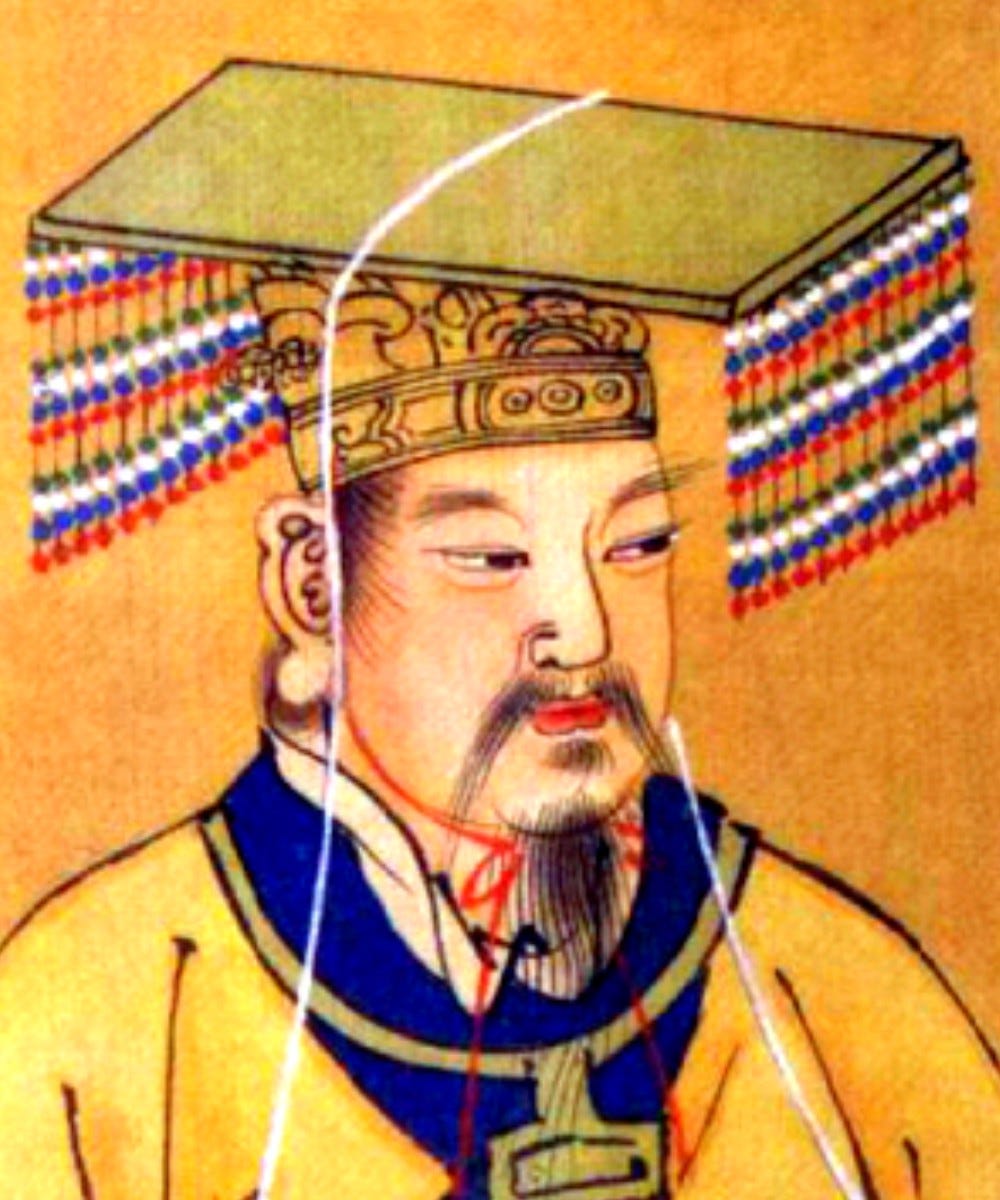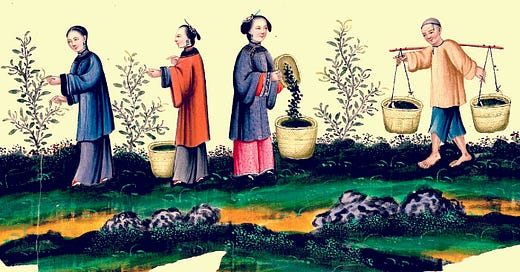It’s become increasingly common amongst healthcare professionals to dismiss thousands of years of knowledge of mental health worldwide and brazenly attribute it to religiosity, magical forces, and demonic possession.
After all, most people believe mental health has only really existed for the last 70 years. And why wouldn’t they believe this? Western psychiatric orthodoxy has dominated the way we think about mental illness, often at the expense of ignoring other cultures and societies, both past and present.
Yet, as new evidence comes to light showing us that mental health is a delicate balance between various forces in our lives, ancient Chinese scholars understood this balancing act well.
Mental Health in Ancient China
According to ancient Chinese philosophy, mental health was a delicate balancing act between positive and negative forces. If man were to live in harmony with his environment, he would integrate himself with the supreme way, known as the tao, and live a long, healthy life free of disease.
Living according to the tao, with balance, would cultivate a healthy mind. Similarly, scholars believed mental illness resulted from living contrary to the “tao,” an imbalance between Yin and Yang forces.
The opposing and complementary forces, Yin and Yang, were used to classify everything from human emotion, organ systems and environmental conditions a person lived in. While Yin forces encompassed qualities of the feminine, dark and cold, Yang forces represented the masculine, light and heat.
As a result, the Chinese believed mental illness was caused by many different factors, ranging from an overabundance of emotion to the climatic conditions in the environment. In other words, experiencing a disequilibrium in your internal or external environments could wreak havoc on your mental health.
In a lot of ways, ancient Chinese thinking may not have been too far off.
New evidence in Seasonal affective Disorder (SAD), a condition characterized by depression during the winter months due to lack of sunlight, highlights the importance of achieving balance by increased exposure to artificial light, a treatment thought to prevent SAD.
And while the Chinese stressed the importance of emotional balance regarding anger, joy, and sadness, new research shows us that emotional dysregulation is strongly associated with psychiatric conditions such as major depression and post-traumatic stress disorder
Understanding the role of internal and external environments on our mental health is an incredibly astute observation to make about the nature of mental illness. Indeed ancient China may have been the first civilization in history to make this link.
Nearly 3000 years later, it seems balance and harmony may still play a role in understanding mental illness and the mind.
Understanding Stress
Remarkably, ancient China recognized the importance of psychological and social factors in mental wellbeing.
Doctors in Ancient China would ask patients about their emotional state and stress levels as part of a complete history. A fascinating script from the Neijing, written in 250BC, describes in detail the importance of asking these questions to a patient
Whenever one examines a patient, it is essential to ask for daily activities, for sudden changes in emotions like excessive happiness or excessive sadness. A change from happiness to sadness causes disturbance in the’ essence air’, leading to the degradation of the body.
Extreme anger disturbs Yin, extreme happiness, Yang. The disturbance of Yin and Yang causes conflicts in the flow of’ air’ which, in turn, leads to the deterioration of body health.
And another passage in the Yellow emperor’s classic of Internal Medicine highlights the importance of social circumstances to a patient’s wellbeing
During the questioning of the patient, [to know about] his class, wealth, and emotions is important. For example, sudden downgrading of a nobleman to a lower station will damage his psychological health, and the suffering of his body may lead to death in severe cases.
A sudden change from rich to poor, although without any invasion by the external’ evil air’, may also lead to progressive weakening of the body and changes in the colour of the skin.
Understanding how different psychosocial factors, such as “social standing” and various emotional states, may cause mental illness indicates Ancient Chinese Medicine’s importance on approaching the patient holistically.
I believe we see one of the first instances of a biopsychosocial framework being used in medical practice. While current models emphasize mental illness as a combination of biological, psychological, and social factors interacting with one another, the ancient Chinese correctly identified that mental illness was multifactoral nearly 3000 years ago.
When the world was steeped in religion and shamanism, ancient China made tremendous strides in understanding mental illness, with their observations still reverberating today.

Prevention is the best cure
Disease prevention can be traced back to the I-Ching (the book of changes), composed roughly in 900 BC, which states the concept of “Chain-tuza” — a great-souled man always meditates on trouble in advance and take steps to prevent it.
Interestingly, the Chinese placed particular importance on exercise for preventing mental illness. A famous saying in the Lii Shih Chhun Chiu (Master Lu’s spring and summer annals) written in 239 BC states “Running water does not become stale nor does a door-pivot ever get worm-eaten”.
Like running water, it was thought exercise would prevent stagnation of the mind. The Chinese believed this could be used as an effective preventative treatment method for a wide array of mental and physical illnesses.
One such use was in the prevention of anxiety. The ancient Chinese described anxiety as a feeling of apprehension and restlessness with a sensation of palpitations — a result of too much worry and excess negative energy.
According to the Chinese, the solution then was cultivating physical strength through multiple exercises and calming the mind through mediation.
Thousands of years later, multiple studies have shown exercise to reduce symptoms of anxiety and depression by releasing feel-good endorphins and breaking the cycle of negative thoughts. Indeed, research shows that physical activity is a protective factor against anxiety disorders.
The ancient Chinese would not be surprised at this finding.
But they would be surprised at our lack of mental health prevention. It’s estimated that over 1 billion people suffer from a mental health disorder, yet countries spend less than 2% of their budgets on mental health.
And while health economists believe conditions such as depression will put more burden on nations than any other disease, a lack of political will to address systemic social injustices makes prevention a pipe dream for most mental health professionals.
Yet, prevention is still possible by making mental health everyone’s business. Advocating for simple measures such as getting better sleep and having regular exercise is a necessary first step in ensuring good mental health.
Preventing mental illness remains the single most effective cure & as written in the Huang Ti Nei Ching, the ancient Chinese would most certainly agree.
Surely it is too late to administer drugs after the illness has declared itself or to try to suppress a revolt after it has come about. Is it not like beginning to dig a well when one feels thirsty, or starting to manufacture weapons of war after the battles have begun? — Huang Ti Nei Ching written in 300BC
Concluding thoughts
I find it incredible that ancient China, developing in complete isolation from the rest of the world due to its geographic borders, would have such fascinating insights into the nature of mental illness.
It seems as if being an agricultural civilization allowed the Chinese to foster a unique relationship with nature. I believe it might have been one of the reasons the Chinese were intimately aware of the need for balance in all aspects of our lives for mental wellbeing.
As we race forward into the future and our understanding of mental health develops, it may be prudent to keep one eye on the past and realize the ancients might have much more to offer us than we care to admit.
I would love to hear your thoughts on this article! Please make sure to comment below and drop some feedback. If you’d like to DM me, you can find me on Twitter !





I've been going to a doctor of traditional Chinese medicine and homeopathy for about a decade now, so I loved reading a bit more about the history of its integrative approach going back thousands of years. Well written, thank you.
You only have to quote from the Yellow Emperor's Classic of Internal Medicine to win my approval!